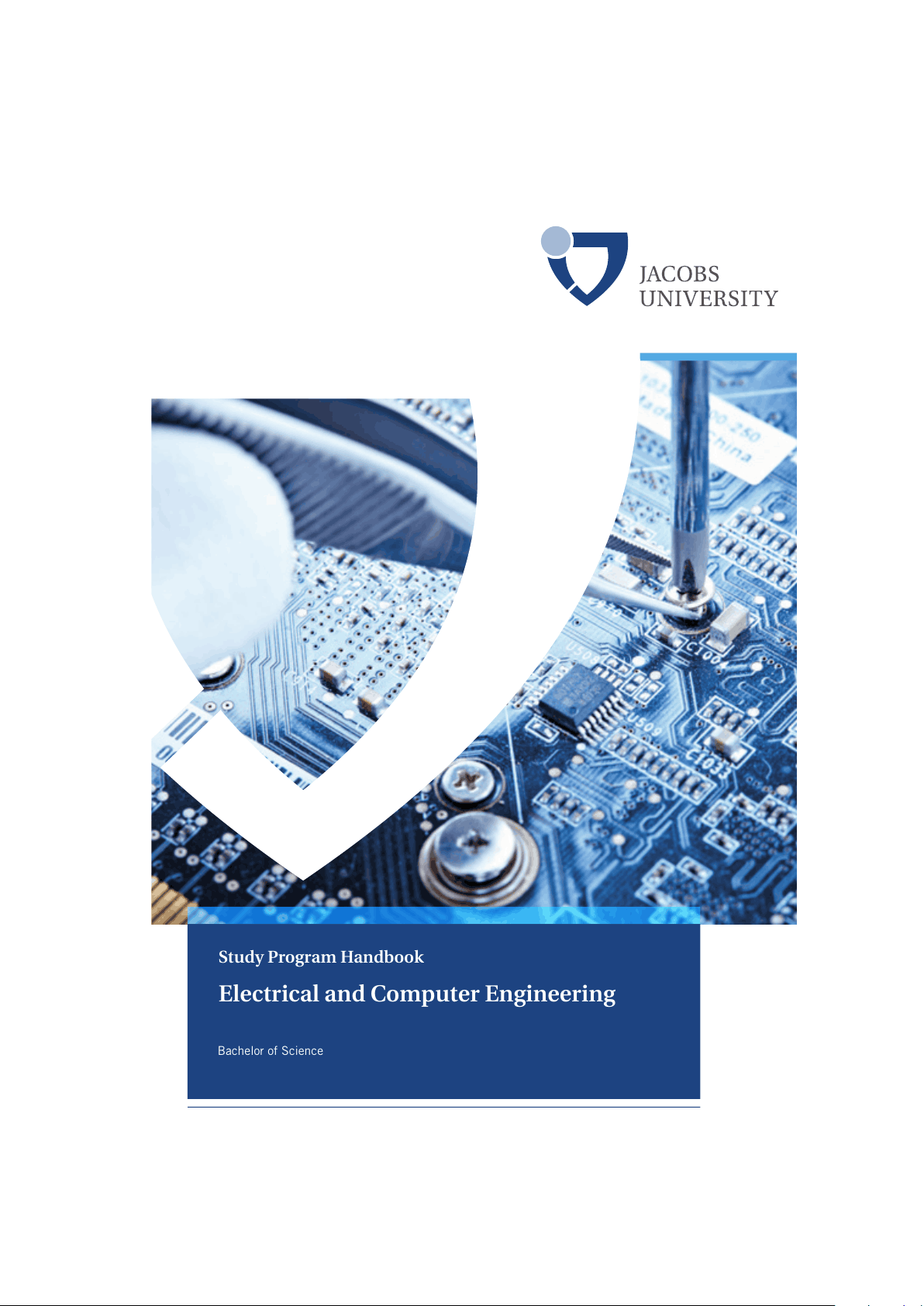
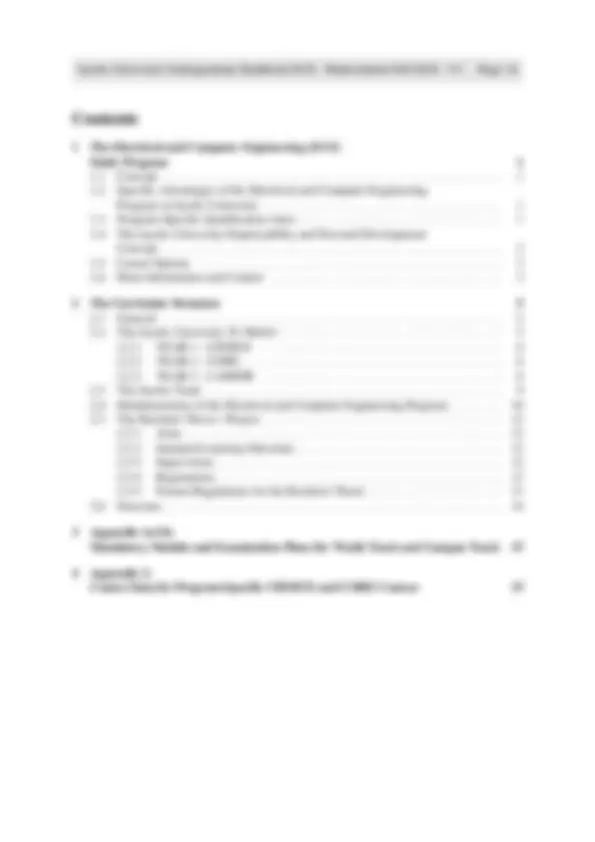
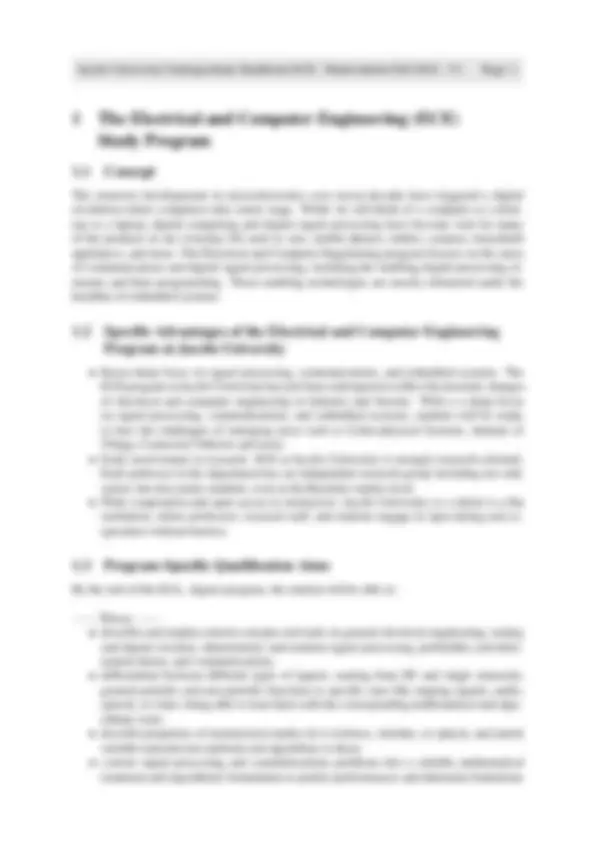
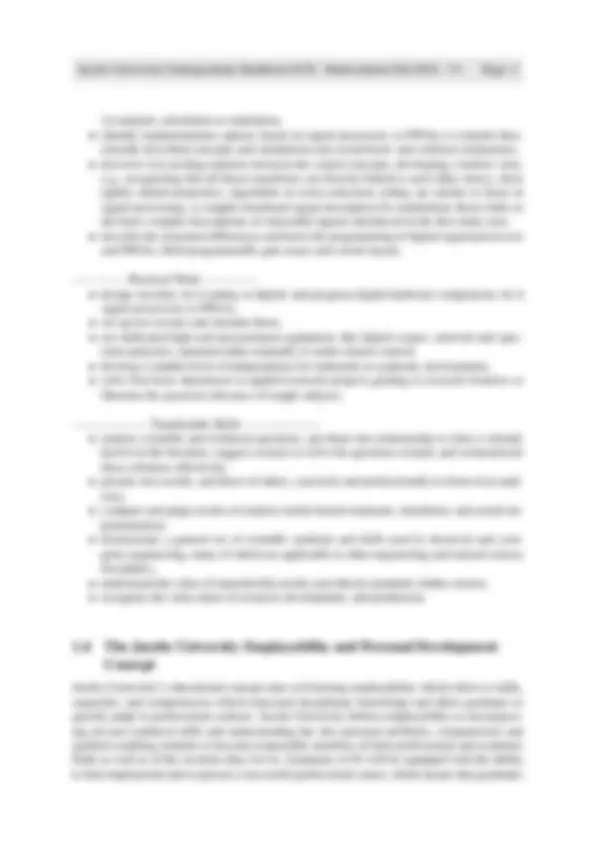
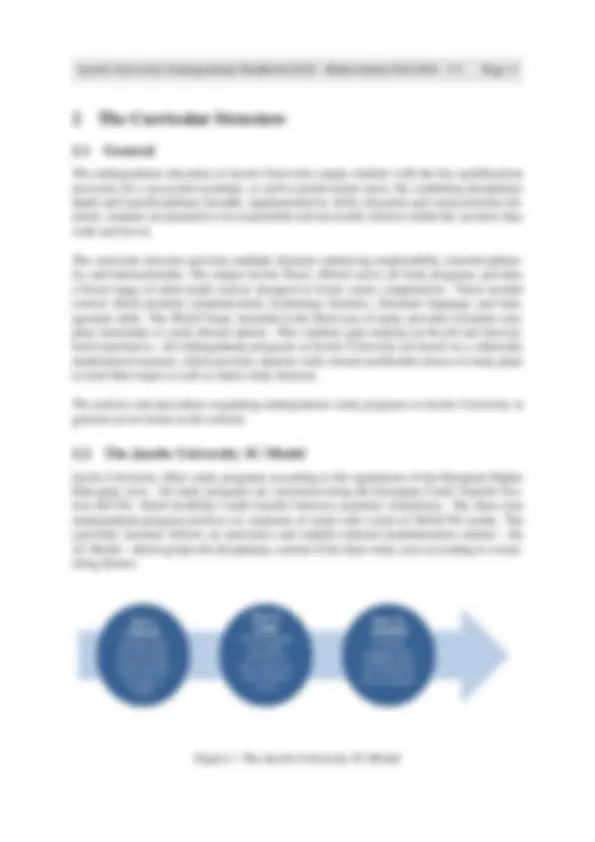
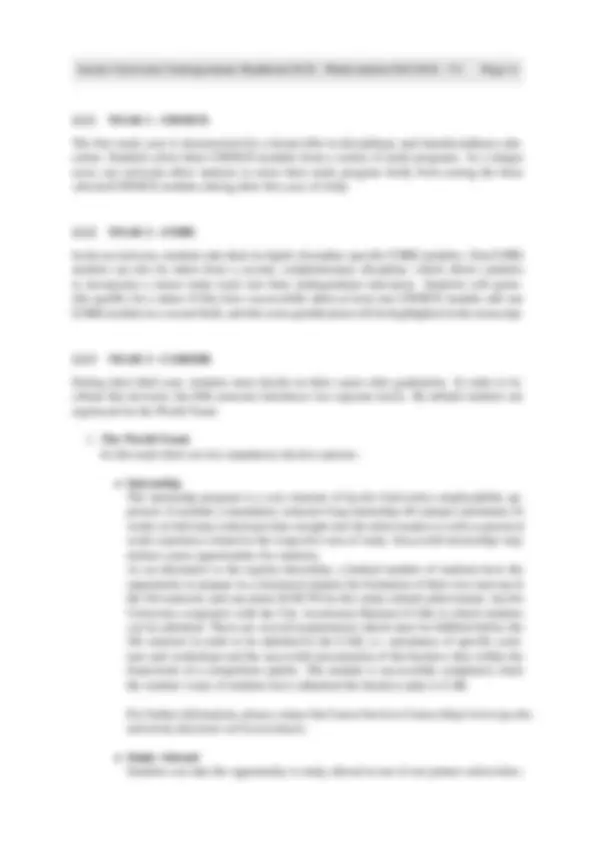
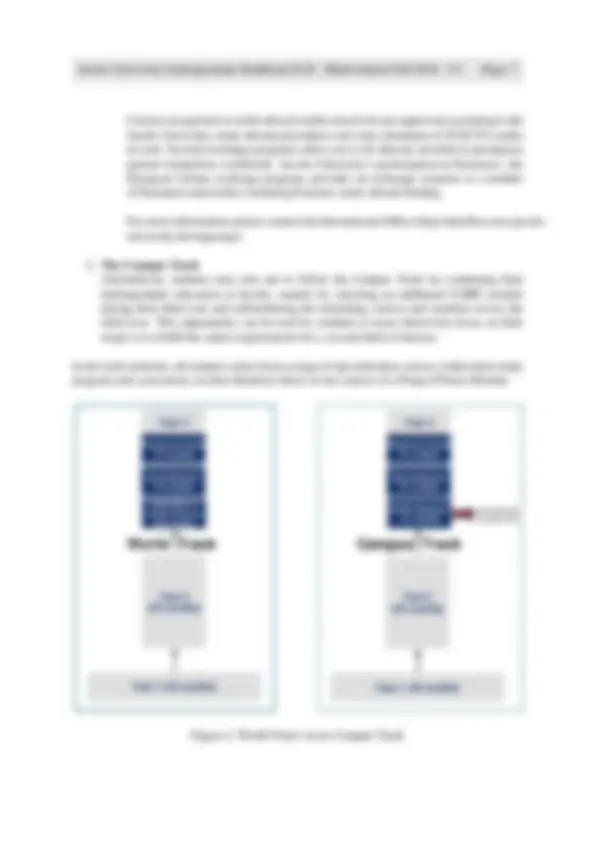
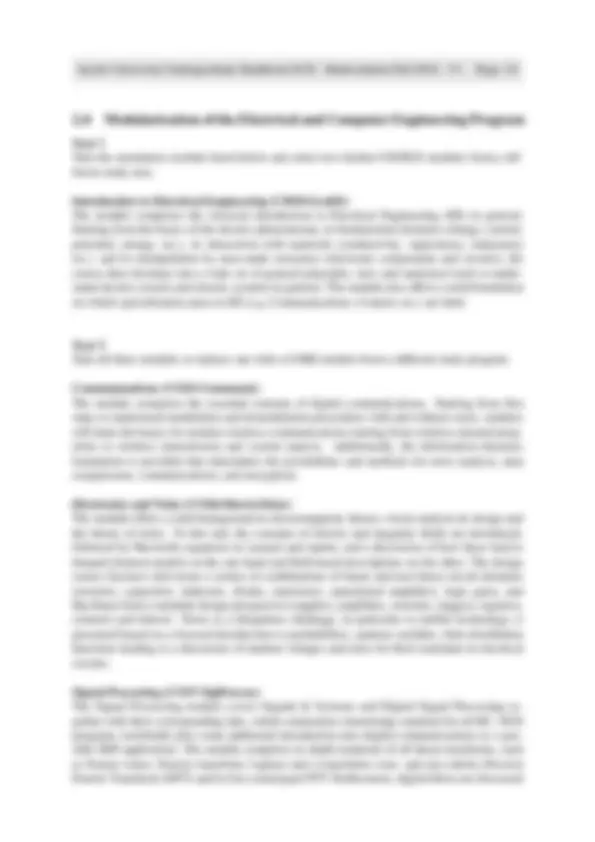
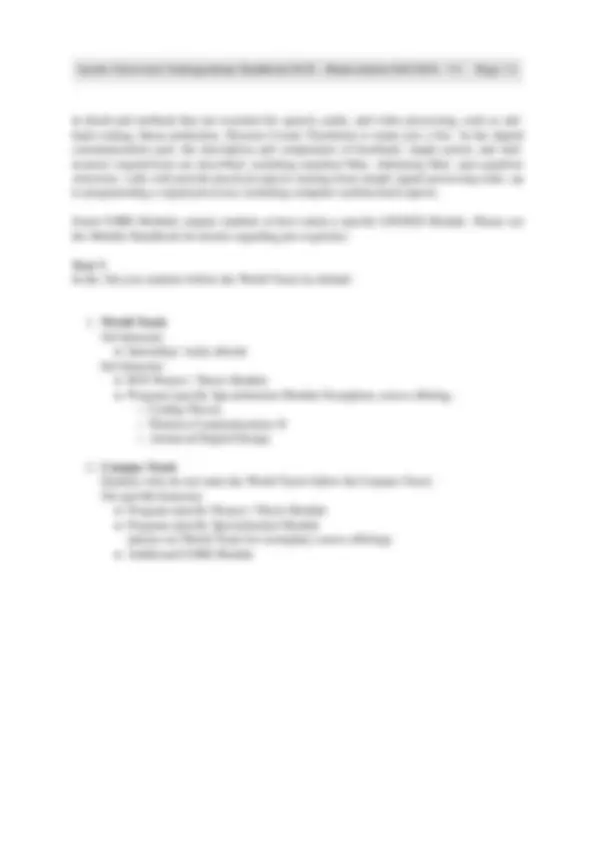
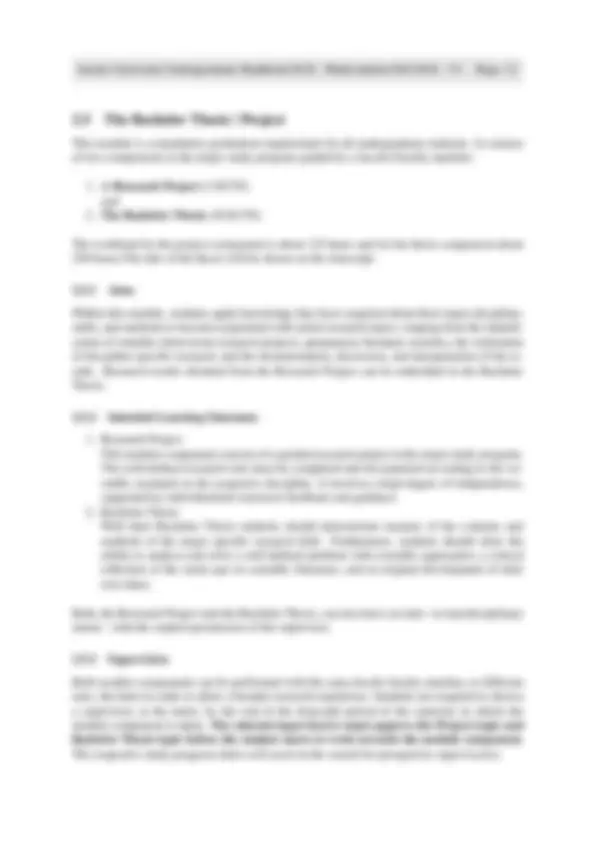
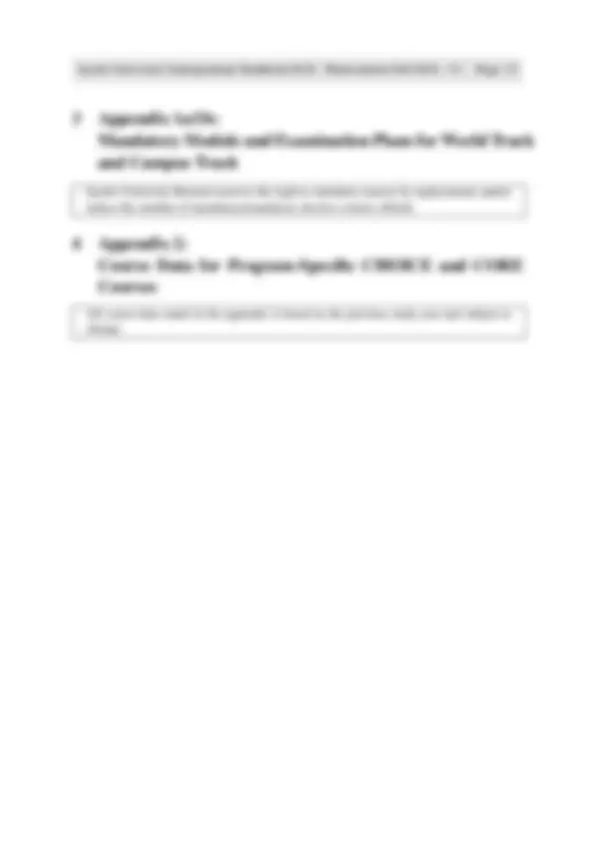
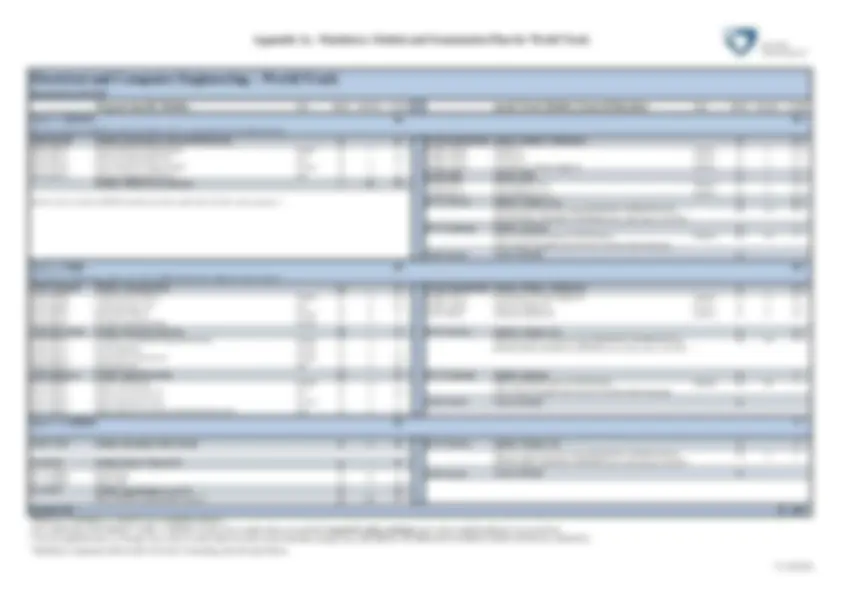
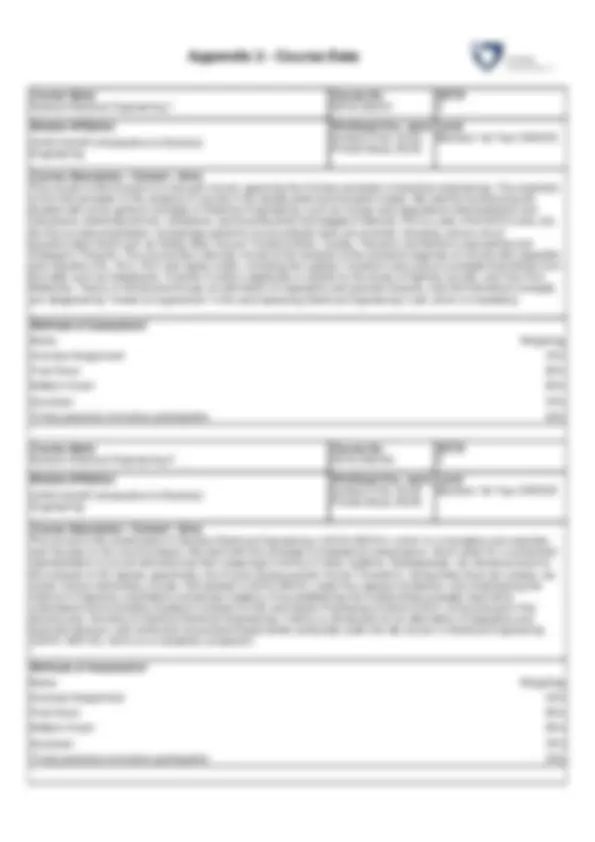
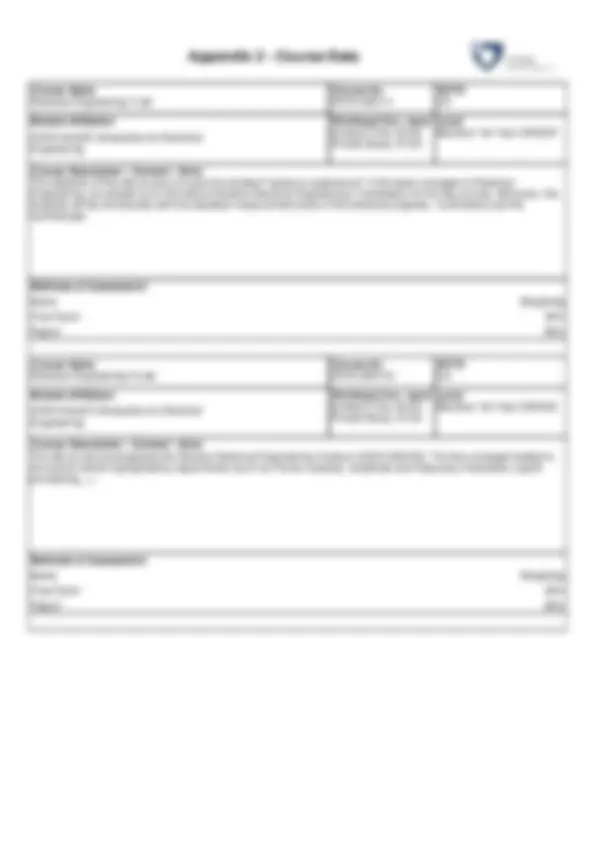
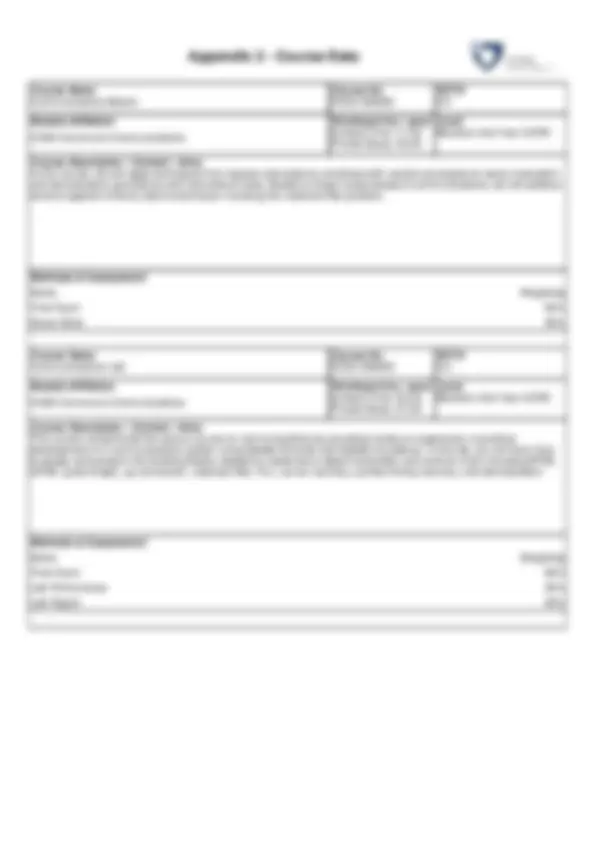
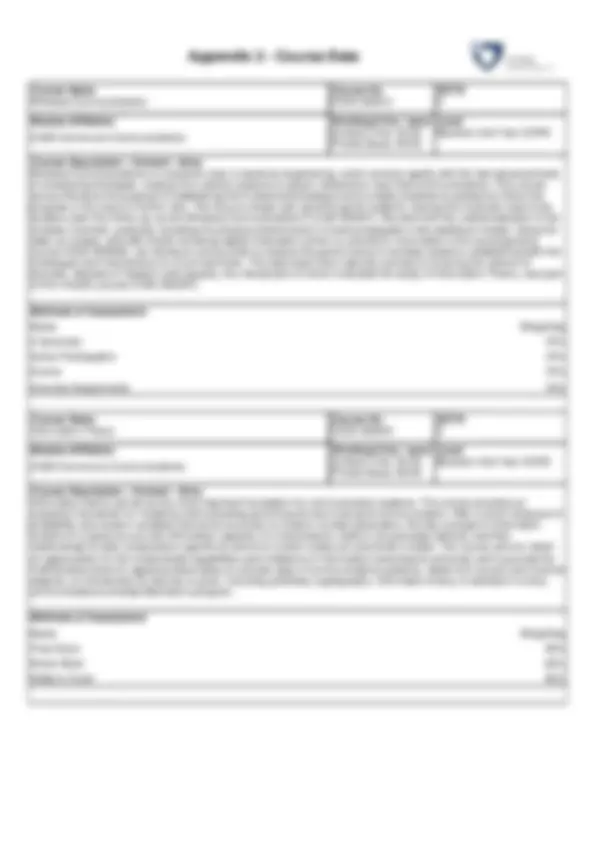
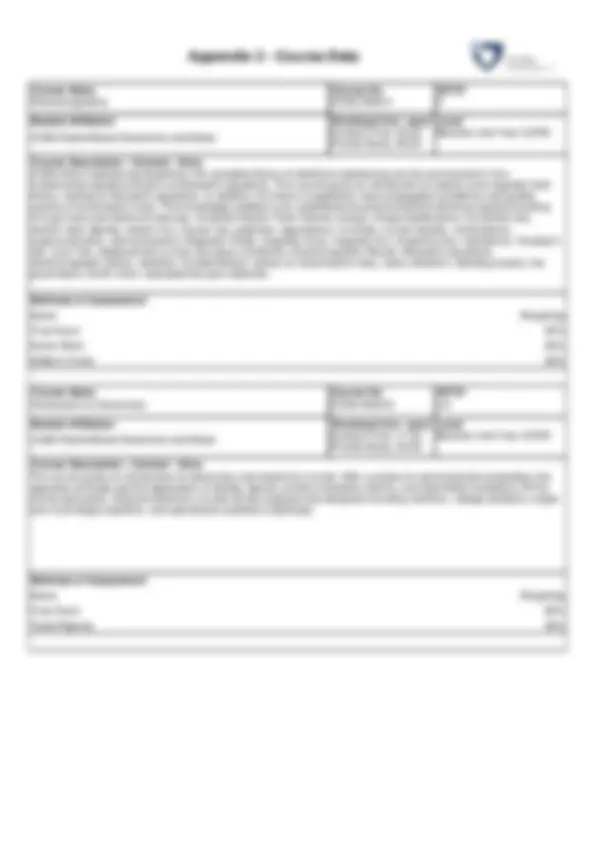
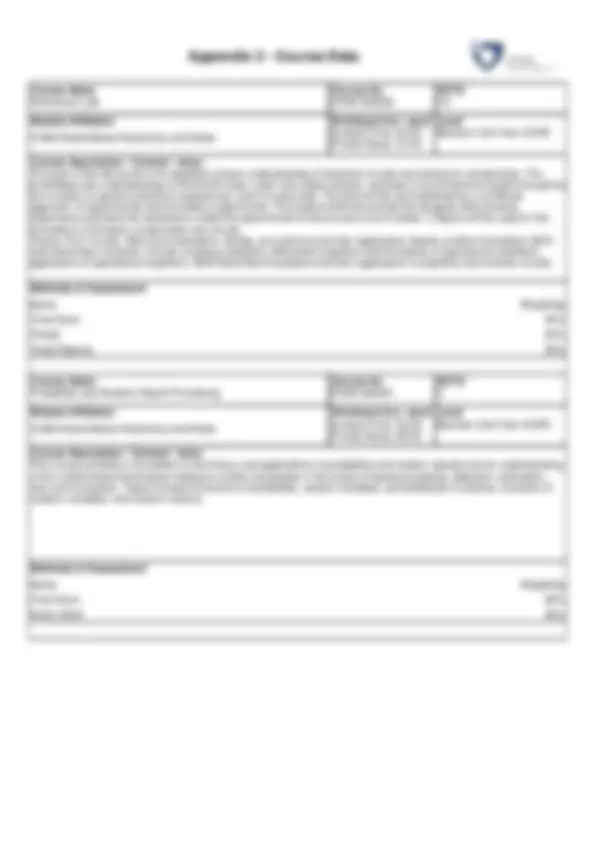
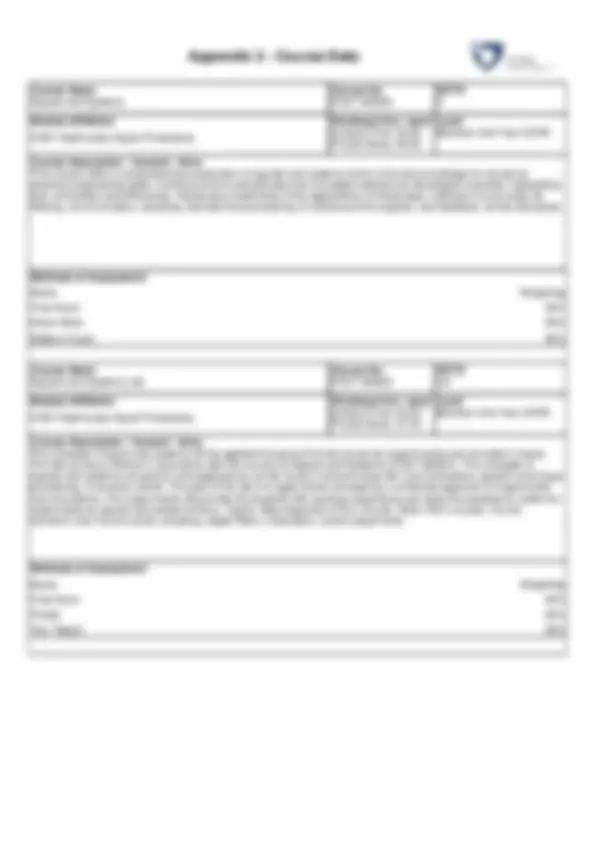
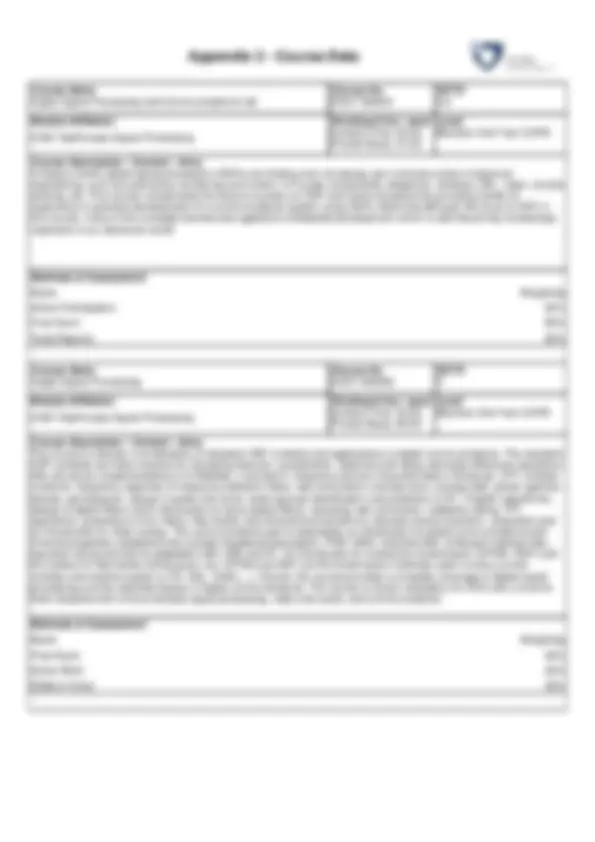
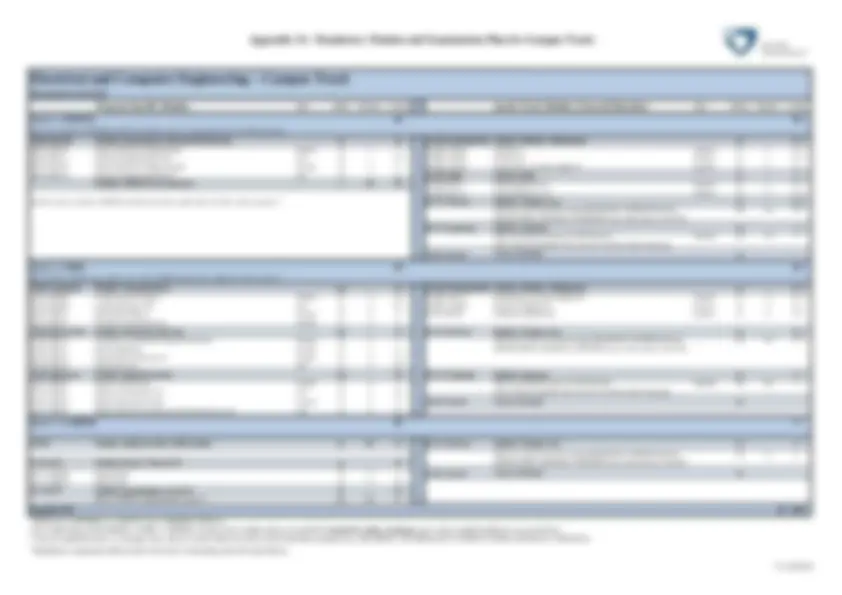


Study with the several resources on Docsity

Earn points by helping other students or get them with a premium plan


Prepare for your exams
Study with the several resources on Docsity

Earn points to download
Earn points by helping other students or get them with a premium plan
Community
Ask the community for help and clear up your study doubts
Discover the best universities in your country according to Docsity users
Free resources
Download our free guides on studying techniques, anxiety management strategies, and thesis advice from Docsity tutors
Jacobs University Undergraduate Handbook ECE - Matriculation Fall 2018 - V1. Page: ii. Subject-specific Examination Regulations for Electrical and Computer ...
Typology: Lecture notes
1 / 28

This page cannot be seen from the preview
Don't miss anything!





















Study Program Handbook
Bachelor of Science
Jacobs University Undergraduate Handbook ECE - Matriculation Fall 2018 - V1 Page: ii
The subject-specific examination regulations for Electrical and Computer Engineering are de- fined by this program handbook and are valid only in combination with the General Examina- tion Regulations forUndergraduate degree programs (General Examination Regulations = Rah- menpr¨ufungsordnung). This handbook also contains the program-specific Mandatory Module and Examination Plans (Appendix 1a / 1b).
Upon graduation, students in this program will receive a Bachelor of Science (BSc) degree with a scope of 180 ECTS (for specifics see chapter 3 of this handbook).
Version Valid as of Decision Details Fall 2018 - V1 01.09.18 Academic Senate August 29, 2018
Master Version
1 The Electrical and Computer Engineering (ECE)
Study Program
The extensive developments in microelectronics over recent decades have triggered a digital revolution where computers take center stage. While we still think of a computer as a desk- top or a laptop, digital computing and digital signal processing have become vital for many of the products in our everyday life such as cars, mobile phones, tablets, cameras, household appliances, and more. The Electrical and Computer Engineering program focuses on the areas of communications and digital signal processing, including the enabling digital processing el- ements and their programming. Those enabling technologies are mostly subsumed under the headline of embedded systems.
By the end of this B.Sc. degree program, the student will be able to:
—— Theory ——
via analytic calculation or simulation,
————– Practical Work ————–
——————- Transferable Skills ——————-
Jacobs University’s educational concept aims at fostering employability which refers to skills, capacities, and competencies which transcend disciplinary knowledge and allow graduates to quickly adapt to professional contexts. Jacobs University defines employability as encompass- ing not just technical skills and understanding but also personal attributes, competencies and qualities enabling students to become responsible members of their professional and academic fields as well as of the societies they live in. Graduates of JU will be equipped with the ability to find employment and to pursue a successful professional career, which means that graduates
or visit our program website: www.jacobs-university.de/ece-program
2 The Curricular Structure
The undergraduate education at Jacobs University equips students with the key qualifications necessary for a successful academic, as well as professional career. By combining disciplinary depth and transdisciplinary breadth, supplemented by skills education and extracurricular ele- ments, students are prepared to be responsible and successful citizens within the societies they work and live in.
The curricular structure provides multiple elements enhancing employability, transdisciplinar- ity, and internationality. The unique Jacobs Track, offered across all study programs, provides a broad range of tailor-made courses designed to foster career competencies. These include courses which promote communication, technology, business, (German) language, and man- agement skills. The World Track, included in the third year of study, provides extended com- pany internships or study abroad options. Thus students gain training on the job and intercul- tural experiences. All undergraduate programs at Jacobs University are based on a coherently modularized structure, which provides students with a broad and flexible choice of study plans to meet their major as well as minor study interests.
The policies and procedures regulating undergraduate study programs at Jacobs University in general can be found on the website.
Jacobs University offers study programs according to the regulations of the European Higher Education Area. All study programs are structured along the European Credit Transfer Sys- tem (ECTS), which facilitates credit transfer between academic institutions. The three-year undergraduate program involves six semesters of study with a total of 180 ECTS credits. The curricular structure follows an innovative and student-centered modularization scheme - the 3C-Model - which groups the disciplinary content of the three study years according to overar- ching themes:
Year I: CHOICE Students have the CHOICE to decide on their major after the first year of study!
Year II: CORE Students study the CORE elements of their major and may choose a minor!
Year III: CAREER Students enhance their CAREER skills and prepare for the job market!
Figure 1: The Jacobs University 3C-Model
Courses recognized as study abroad credits need to be pre-approved according to the Jacobs University study abroad procedures and carry minimum of 20 ECTS credits in total. Several exchange programs allow you to be directly enrolled at prestigious partner institutions worldwide. Jacobs University’s participation in Erasmus+, the European Unions exchange program, provides an exchange semester at a number of European universities including Erasmus study abroad funding.
For more information, please contact the International Office (http://intoffice.user.jacobs- university.de/outgoing/).
In the sixth semester, all students select from a range of specialization courses within their study program and concentrate on their Bachelor thesis in the context of a Project/Thesis Module.
2
Year 1 (45 credits)
Year 2 (45 credits)
Year 1 (45 credits)
Year 2 (45 credits)
Year 3 Research/Thesis (15 credits)
CORE Module 4 (15 credits)
Specialization (15 credits)
prerequisites must be met
Year 3 Research/Thesis (15 credits)
Internship or Study Abroad (20 credits)
Specialization (10 credits)
Figure 2: World Track versus Campus Track
Career Advising
Is a mandatory component of the Jacobs University’s Advising and Counseling Scheme. Fur- ther components are ”Academic Advising” and ”Psychological Counseling and Intercultural Services”. Throughout their studies all students attend a mandatory set of career skills events. The mandatory ”Career Skills Advising” prepares all undergraduate students at Jacobs Uni- versity for the transition from student life to working life as well as for their future career. Skills, knowledge and information which are fundamental for participation in an internship or a semester abroad will be conveyed concurrently. Essential components include information sessions, compulsory workshops on various career-relevant topics as well as participation in the annual Jacobs Career Fair.
All undergraduate students will be automatically registered for ”Career Skills Advising”. How- ever, every student has to keep track of his/her individual fulfillment of requirements and has to register on CampusNet for all workshops and sessions during the official registration period at the beginning of each semester. An overview of the sequence in which events should be attended is shown in the table below.
SEMESTER 1 2 3 4 5 6 MANDATORY BASICS
CSC-INFO Session: “CSC Services” CA01-
CSC-INFO Session: “World Track” CA01-
MANDATORY SEMINARS
Both seminars have to be attended in your first or second semester: CSC-APPLICATION TRAINING CA01- CSC-SUCCESS IN STUDIES, CAREER AND LIFE CA01-
MANDATORY ELECTIVE SEMINARS (seminar program subject to availability)
Attend 2 out of several career skills seminars and workshops in your third or forth semester, i.e. Research & Contacting Employers Business Etiquette Presentation Skills Communication Skills Grad School Application Training Self-Management Time-Management Decision Making Preparing for an Interview Introduction to Project Management Career Orientation Working in Germany Stress Management
OTHER MANDATORY COMPONENTS
CSC-JACOBS CAREER FAIR in February, on campus CA01-
CAREER RELATED STUDY PROGRAM COMPONENTS
INTERNSHIP (World Track) or STUDY ABROAD (World Track) or CAMPUS TRACK (exceptional)
INTERNSHIP & STUDY ABROAD EVENT
Figure 3: Career Advising
Year 1 Take the mandatory module listed below and select two further CHOICE modules from a dif- ferent study area.
Introduction to Electrical Engineering (CH10-GenEE) The module comprises the classical introduction to Electrical Engineering (EE) in general. Starting from the basics of the electric phenomenon, its fundamental elements (charge, current, potential, energy, etc.), its interaction with materials (conductivity, capacitance, inductance etc.) and its manipulation by man-made structures (electronic components and circuits), the course then develops into a wide set of general principles, laws and analytical tools to under- stand electric circuits and electric systems in general. The module also offers a solid foundation on which specialization areas in EE (e.g. Communications, Control, etc.) are built.
Year 2 Take all three modules or replace one with a CORE module from a different study program.
Communications (CO25-Communic) The module comprises the essential contents of digital communications. Starting from first steps to understand modulation and demodulation procedures with and without noise, students will learn the basics for modern wireless communications starting from wireless channel prop- erties to wireless transmission and system aspects. Additionally, the information theoretic foundation is provided that determines the possibilities and methods for error analysis, data compression, communications, and encryption.
Electronics and Noise (CO26-ElectroNoise) The module offers a solid background in electromagnetic theory, circuit analysis & design and the theory of noise. To this end, the concepts of electric and magnetic fields are introduced, followed by Maxwells equations in vacuum and matter, and a discussion of how these lead to lumped element models on the one hand and field-based descriptions on the other. The design course (lecture+ lab) treats a variety of combinations of linear and non-linear circuit elements (resistors, capacitors, inductors, diodes, transistors, operational amplifiers, logic gates, and flip-flops) from a modular design perspective (supplies, amplifiers, switches, triggers, registers, counters and timers). Noise as a ubiquitous challenge, in particular to mobile technology, is presented based on a focused introduction to probabilities, random variables, their distribution functions leading to a discussion of random voltages and rules for their treatment in electrical circuits.
Signal Processing (CO27-SigProcess) The Signal Processing module covers Signals & Systems and Digital Signal Processing to- gether with their corresponding labs, which summarizes knowledge standard for all EE / ECE programs worldwide plus some additional introduction into digital communications as a pos- sible DSP application. The module comprises in depth treatment of all linear transforms, such as Fourier series, Fourier transform, Laplace and z-transforms (one- and two-sided), Discrete Fourier Transform (DFT) and its fast counterpart FFT. Furthermore, digital filters are discussed
in detail and methods that are essential for speech, audio, and video processing, such as sub- band coding, linear prediction, Discrete Cosine Transform to name just a few. In the digital communications part, the description and components of baseband, single-carrier, and mul- ticarrier transmission are described, including matched filter, whitening filter, and equalizer structures. Labs will provide practical aspects starting from simple signal processing tasks, up to programming a signal processor, including computer architectural aspects.
Some CORE Modules require students to have taken a specific CHOICE Module. Please see the Module Handbook for details regarding pre-requisites.
Year 3 In the 3rd year students follow the World Track by default:
2.5.4 Registration
World Track students register for both components, at the earliest, in their 6th semester. Campus Track students register for the Project component in the 5th and for the Bachelor Thesis component, at the earliest, in their 6th semester.
The registrations must be made before the end of the respective drop/add periods.
Later enrolment is possible for those students pursuing a second major or those who graduate late for other reasons. These students perform their (second) thesis earliest in the 7th semester of their studies. They have to contact the Student Records Office for individual registration.
Students are allowed to extend their thesis related work into the intersession or summer break upon approval of the thesis supervisor and Student Records. Students are not allowed to register for different Bachelor Thesis courses in the same semester.
2.5.5 Formal Regulations for the Bachelor Thesis
Deadline for submission of the Bachelor Thesis is May 15 (unless specified otherwise by the Student Records Office).
CAREER 1
Internship / Study Abroad (World Track)
CAREER 2
Specialization
Jacobs Track
Transdisciplinary Triangle Business, Technology, Societal Context
........
Languages
........
Methods Mathematics, Statistics .........
Skills
CAREER 3
Project/ Research BA/BSc Thesis
CORE 1
Communications
CORE 2
Electronics and Noise
CORE 3
Signal Processing
CHOICE 1
Introduction to Electrical Engineering
CHOICE 2
Own selection
CHOICE 3
Own selection
Year 3
Year 2
Year 1
YEAR 1 Take three CHOICE modules, two free selection YEAR 2 Take three CORE modules, one CORE module can be substituted by a CORE module from a second study program to pursue a minor YEAR 3 Alternatively Campus Track with a 4th CORE module instead of internship/study abroad module
Figure 4: Electrical and Computer Engineering Module Structure
Appendix 1a - Mandatory Module and Examination Plan for World Track
Program-Specific Modules
Type
Status
¹^
Semester
Credits
Jacobs Track Modules (General Education)
Type
Status
¹^
Semester
Credits
Year 1 - CHOICE
45
20
Take the mandatory CHOICE module listed below, this is a requirement for the ECE program. CH10-IntroEE
Module: Introduction to Electrical Engineering
m^
15
JT-ME-MethodsMath
Module: Methods / Mathematics
m^
7,
CH10-
General Electrical Engineering I
Lecture
m^
1
5
JT-ME-
Calculus I
Lecture
m^
1
2,
CH10-
Electrical Engineering I Lab
Lab
m^
1
2,
JT-ME-
Calculus II
Lecture
m^
1
2,
CH10-
General Electrical Engineering II
Lecture
m^
2
5
JT-ME-
Foundations of Linear Algebra I
Lecture
m^
2
2,
CH10-
Electrical Engineering II Lab
Lab
m^
2
2,
JT-SK-Skills
Module: Skills
m^
5
Module: CHOICE (own selection)
e^
1/
30
JT-SK-
Programming in C I
Lecture
m^
1
2,
JT-SK-
Programming in C II
Lecture
m^
2
2,
Students take two further CHOICE modules from those offered for all other study programs. ²
JT-TA-TriArea
Module: Triangle Area
m^
2,
Take one course from the triangle (BUSINESS, TECHNOLOGY &
me
1/
2,
INNOVATION, SOCIETAL CONTEXT) area. Each counts 2,5 ECTS ³
JT-LA-Language
Module: Language
m^
5
Take two German courses (2,5 ECTS each).
Seminar
me
1/
5
Native German speakers take courses in another offered language
CA01-CarAdv
Career Advising
4
m
Year 2 - CORE
45
20
Take all three modules or replace one with a CORE module from a different study program. ² CO25-Communic
Module: Communications
me
15
JT-ME-MethodsMath
Module: Methods / Mathematics
m^
7,
CO25-
Communications Basics
Lecture
m^
3
2,
JT-ME-
Foundations of Linear Algebra II
Lecture
m^
3
2,
CO25-
Communications Lab
Lab
m^
3
2,
JT-ME-
Numerical Methods I
Lecture
m^
4
2,
CO25-
Information Theory
Lecture
m^
4
5
CO16-
Numerical Methods II
Lecture
m^
4
2,
CO25-
Wireless Communications
Lecture
m^
4
5
CO26-ElectroNoise
Module: Electronics and Noise
me
15
JT-TA-TriArea
Module: Triangle Area
m^
7,
CO26-
Probability and Random Signal Processing
Lecture
m^
3
5
Take three courses from the triangle (BUSINESS, TECHNOLOGY &
me
3/
7,
CO26-
Electromagnetics
Lecture
m^
3
5
INNOVATION, SOCIETAL CONTEXT) area. Each counts 2,5 ECTS ³
CO26-
Introduction to Electronics
Lecture
m^
4
2,
CO26-
Electronics Lab
Lab
m^
4
2,
CO27-SigProcess
Module: Signal Processing
me
15
JT-LA-Language
Module: Language
m^
5
CO27-
Signals and Systems
Lecture
m^
3
5
Take two German courses (2,5 ECTS each).
Seminar
me
3/
5
CO27-
Signals and Systems Lab
Lab
m^
3
2,
Native German speakers take courses in another offered language
CO27-
Digital Signal Processing
Lecture
m^
4
5
CA01-CarAdv
Career Advising
4
m
CO27-
Digital Signal Processing and Communications Lab
Lab
m^
4
2,
Year 3 - CAREER
45
5
CA02 / CA
Module: Internship / Study Abroad
m^
5
20
JT-TA-TriArea
Module: Triangle Area
m^
5
Take two courses from the triangle (BUSINESS, TECHNOLOGY &
me
6
5
CA11-ECE
Module: Project / Thesis ECE
m^
15
INNOVATION, SOCIETAL CONTEXT) area. Each counts 2,5 ECTS ³
CA11-
Project ECE
m^
6
5
CA01-CarAdv
Career Advising
4
m
CA11-
Thesis ECE
m^
6
10
CA-S-ECE
Module: Specialization Area ECE
m^
10
Take 10 ECTS of specialization courses ²
me
5/
10
Total ECTS
180
¹ Status (m = mandatory, e = elective, me = mandatory elective)² For a full listing of all CHOICE / CORE / CAREER / Jacobs Track modules please consult the
CampusNet online catalogue
and / or the module handbook (on our website).
³ You are required to take six Triangle Area courses in total. Select two from each of the three triangle areas (BUSINESS, TECHNOLOGY & INNOVATION, SOCIETAL CONTEXT). 4 Mandatory component of the Jacobs University's Counseling and Advising Scheme.
V.1 07/
Course Name General Electrical Engineering I
Course No CH10-
ECTS 5
Module Affiliation
CH10-IntroEE Introduction to Electrical Engineering
Workload (hrs / sem) Contact Time: 35, Private Study: 90,
Level Bachelor 1st Year CHOICE
Course Description / Content / Aims This course is the first part of a two-part course, spanning the first two semester of electrical engineering. The emphasis of the first semester is the analysis of circuits in DC steady state and transient modes. We start by familiarizing the student with some general concepts of Electrical Engineering, such as charge and capacitance (electrostatics) and inductance (electrodynamics), resistance, (semi)conductivity and dopped materials, Ohm’s Laws, Kirchhoff’s Laws, etc.. As the courses progresses, increasingly powerful circuit analysis tools are covered, including various circuit transformation tools such as Deltay-Wye, Source Transformation, Duality, Thevenin and Norton’s equivalents and Tellegen’s Theorem. The course then naturally moves to the analysis of the transient response of circuits with capactitor and inductors (RL, RLC, RLC and higher-order), including the Laplace Transform and various concepts that follows from the latter such as Impedance, Transfer Function (especially in relation to the study of OpAmp circuits), and Two-Port Networks. Theory is introduced through an alternation of expositive and exercise lectures, and the theoretical concepts are deepened by “hands on experience” in the accompanying Electrical Engineering I Lab, which is mandatory.
Name Weighting Exercise Assignment 10% Final Exam 35% Midterm Exam 35%
Quizz(es) 10% Timely presence and active participation 10%
Methods of Assessment
Course Name General Electrical Engineering II
Course No CH10-
ECTS 5
Module Affiliation
CH10-IntroEE Introduction to Electrical Engineering
Workload (hrs / sem) Contact Time: 35, Private Study: 90,
Level Bachelor 1st Year CHOICE
Course Description / Content / Aims The course is the continuation of General Electrical Engineering I (CH10-300101), which is a mandatory pre-requisite, and focuses on AC circuit analysis. We start with the concepts of impedance and phasors, which allow for a convenient representation of circuit elements and their responses in terms of linear systems. Subsequently, we introduce tools for the analysis of AC signals, specifically, the Fourier Series and the Fourier Transform. Using these tools are a basis, we revise various elementary circuits, first studied in CH10-300101 under the Laplace framework, now emphasizing the notions of frequency (oscillation) and phase (rotation), thus establishing the fundamental concepts required to understand Communication Systems (module CO-25) and Signal Processing (module CO27), to be pursued in the second year. Similarly to General Electrical Engineering I, theory is introduced via an alternation of expositive and exercise lecturers, and reinforced via practical experiments conducted under the lab course in Electrical Engineering (CH10- 300112), which is a mandatory companion
Name Weighting Exercise Assignment 10% Final Exam 35% Midterm Exam 35%
Quizz(es) 10% Timely presence and active participation 10%
Methods of Assessment